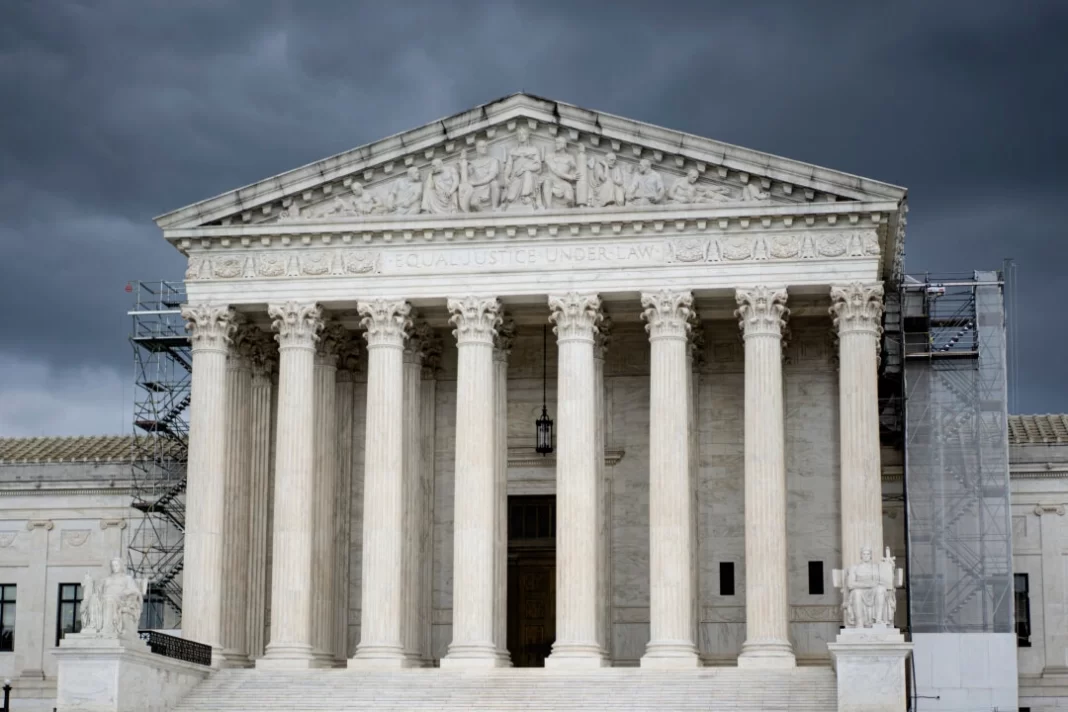Trump signed a proclamation in March to allow removal of alleged Tren de Aragua members under the Alien Enemies Act.
The Supreme Court on May 16 agreed to block the government from deporting alleged Venezuelan gang members under the Alien Enemies Act.
“The application for an injunction pending further proceedings is granted,” the court said in an unsigned order.
Justices Samuel Alito and Clarence Thomas dissented.
The high court also acknowledged it may have to schedule an oral argument in the case known as A.A.R.P. and W.M.M. v. Trump at some point in the future after the U.S. Court of Appeals for the Fifth Circuit revisits the case. A.A.R.P. and W.M.M. are the initials of two of the detainees.
“Additionally, [the detainees] suggested this Court treat the application as a petition for a writ of certiorari; doing so, the petition is granted,” the order states.
A writ of certiorari is a court order that allows the justices to move forward with hearing an appeal. When certiorari is granted, the Supreme Court typically holds an oral argument in the case.
On March 14, President Donald Trump signed a proclamation in which he officially declared that Tren de Aragua, a designated foreign terrorist organization associated with Venezuela, “is perpetrating, attempting, and threatening an invasion or predatory incursion against the territory of the United States.”
The president invoked the Alien Enemies Act of 1798 to authorize the “immediate apprehension, detention, and removal” of members of the group who are Venezuelan citizens 14 years of age or older and who are not U.S. citizens or lawful permanent residents of the United States.
The Supreme Court had on April 19 issued a temporary block preventing the Trump administration from deporting an unspecified number of Venezuelan men currently in immigration custody in Texas who are alleged to be members of a criminal gang.
In the new order, the Supreme Court sent the case back to the U.S. Court of Appeals for the Fifth Circuit, instructing it to address the detainees’ claims.
Although the Supreme Court directed the government not to remove the detainees under the authority of the Alien Enemies Act, the order states that the government “may remove the named plaintiffs or putative class members under other lawful authorities.”
The Supreme Court said in its order that the government did not give detainees enough time to challenge their proposed removal.








